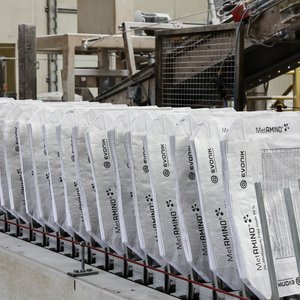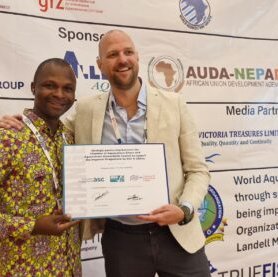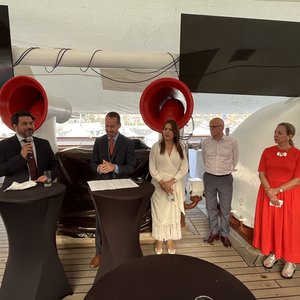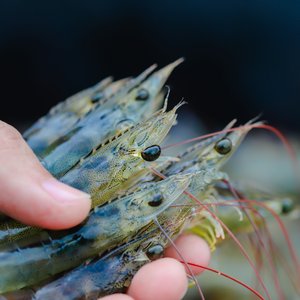KnipBio, a Massachusetts-based biotechnology company, has developed a series of microbes that converts low-cost feedstocks into premium, nutritious, single-cell proteins that are an alternative to fishmeal in aquaculture. Its fermentation process yields a protein flour that is laden with immunity-boosting, pigment-enhancing carotenoids to produce healthier, more vibrant fish.
Ethanol is one potential feedstock of the multiple streams that serve as nutrition for the KnipBio microorganisms. All forms of ethanol are being evaluated, including hydrous, neat and beer. Colocating with an ethanol plant would also be advantageous since blending the KnipBio product with DDGS could make a super-feed. “DDGS alone have been examined for fish feed, but are relatively low value,” Feinberg says. “Blending them with carotenoid containing, single cell proteins could make a better overall feed, raising the protein content from 40 to 70 percent.”
“DDGS sell in the range of $150 per metric ton. A ton of our product will range from $1,500 to $3,500 per metric ton, representing the potential to significantly upgrade the value on site and diversify,” he says. “Getting into aquaculture feed offers ethanol producers the opportunity to diversify and increase output. Producing 25 million tons of fish per year will require at least 30 million metric tons of feed. That corresponds to 100 percent of the 15 billion gallons produced by the U.S. each year. Obviously, all ethanol production is not going to fishmeal production, but the point is that the markets are massive. For all these reasons, ethanol colocation makes sense and is part of our scale-up partnership plans,” Feinberg says.
Source: Ethanol Producer Magazine // Original Article










